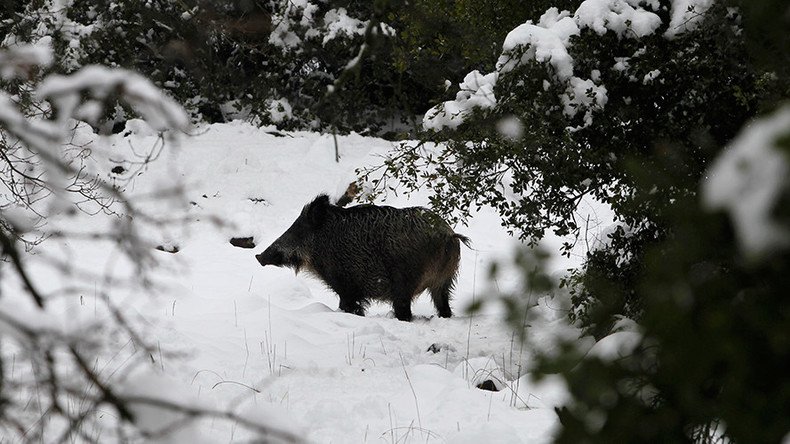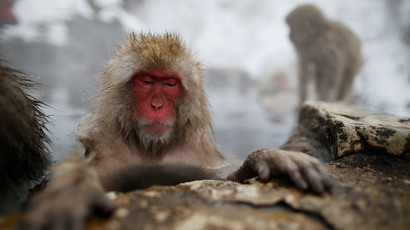Radioactive wild boars have been detected in Czech forests, some 31 years after the Chernobyl disaster, a veterinary administration official said, adding that they are eating mushrooms that can absorb high levels of radioactive isotopes.
The animals became radioactive due to false truffles, the underground mushrooms they feed on, Jiri Drapal at the Czech State Veterinary Administration told Reuters. The mushroom is found in the Sumava mountain region in the Czech Republic, which borders Austria and Germany.
It can absorb high levels of radioactive isotopes, including Caesium 137, which was released in great quantities after the Chernobyl disaster in 1986.
Caesium-137 has a half-life of 30 years, which means it loses half of its radioactivity within that period.
When boars eat radioactive mushrooms, they become radioactive themselves. Boar meat is highly popular in the Czech Republic, so there’s danger of radioactive meat ending up on one’s table.
"We can expect to find (affected) food for a number of years from now,” Drapal said, adding that all meat should be checked for radioactivity.
According to Reuters data, at least 614 wild boars were inspected from 2014 to 2016, and 47 percent of them were radioactive.
The Chernobyl disaster occurred on April 26, 1986, at Reactor No. 4 of the Chernobyl Nuclear Power Plant in Ukraine, which was then a republic of the Soviet Union. As a result of the explosion and fire, a huge radioactive cloud spread into the atmosphere, covering thousands of miles of Soviet and European territories.
READ MORE: Radioactive reindeer: Mushrooms blamed for Cesium spike in Norway
In 2014, scientists from the Norwegian Radiation Protection Authority (NRPA) said that unexpectedly high levels of radioactivity were found in Norway’s reindeer and sheep.


